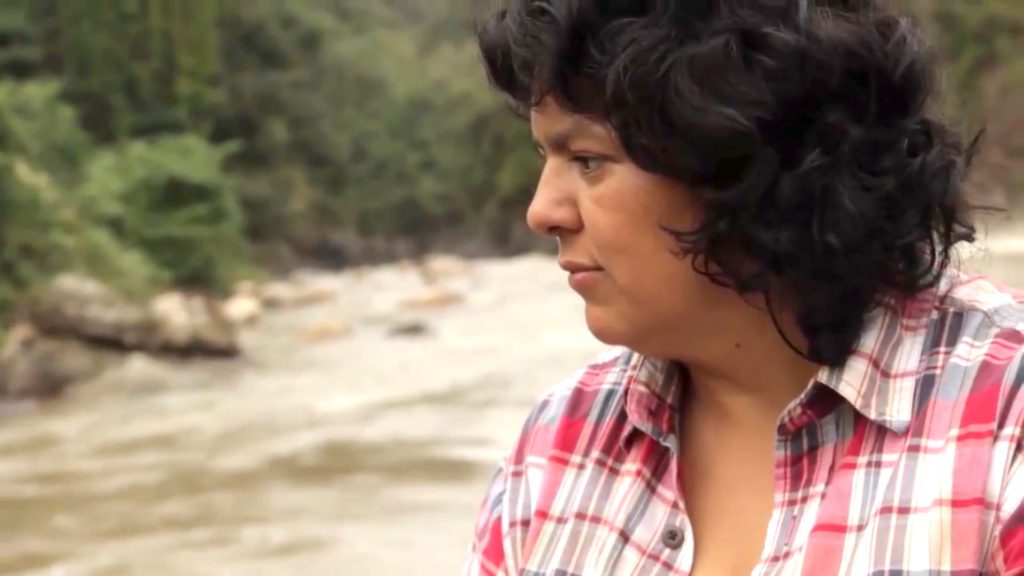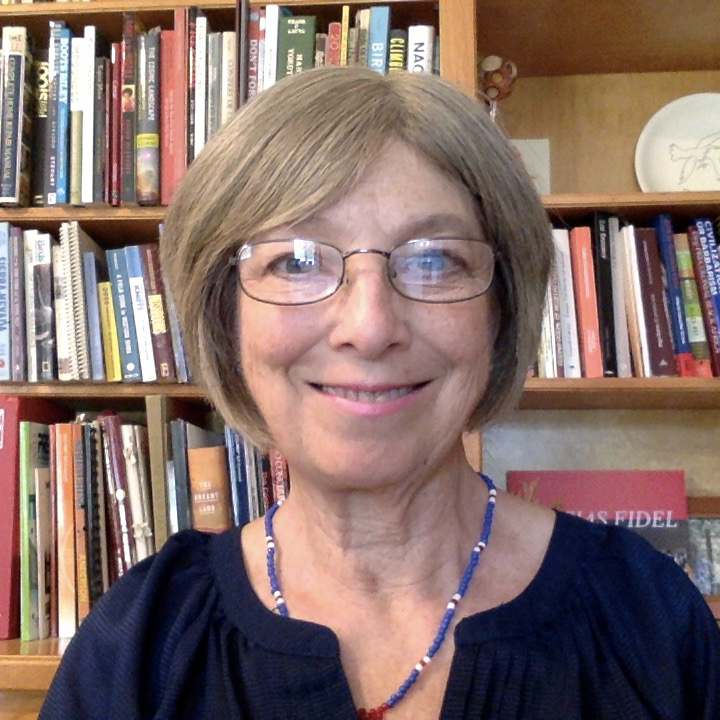

By Leni Villagomez Reeves
The Murder of Berta Cáceres
Roberto David Castillo Mejía, planner and instigator of the murder of Berta Cáceres in Honduras, was finally convicted in July 2021, more than five years after the crime. The sentencing hearing started on Aug. 3, and the Fiscalía (attorney general equivalent) of Honduras asked for 25 years, the maximum sentence for instigation to commit murder in that country. His defense attorney asked for a minimum sentence of 20 years.
The Supreme Court of Justice has not yet set a date for the sentencing, saying that the case is complex. Will this rich, powerful man actually be held accountable? Or will it be a slap on the wrist?
Cáceres was killed on March 3, 2016, one day before what should have been her 45th birthday. In December 2019, the triggermen—seven of them—were sentenced to prison for the murder. On July 5, the high court in Honduras found that Castillo used paid informants and his military background to monitor Cáceres for years, and, based on the evidence, including phone records, the court ruled that he coordinated, planned and obtained the money to pay for the assassination of Cáceres.
It is interesting because Castillo was clearly expecting impunity. He wasn’t even caring. The gunmen communicated with him just prior to entering Cáceres’s house and shooting her to death while wounding Mexican environmental activist Gustavo Castro Soto, who was in La Esperanza for a meeting to discuss alternatives to a hydroelectric project. (He survived because they thought he was dead.) The killers communicated with Castillo again just after leaving the scene.
A Brief Review
Cácres was a Lenca woman who co-founded the COPINH, the Civic Council of Popular and Indigenous Organizations of Honduras, to fight for Indigenous rights and territories. The Indigenous community fought the Agua Zarca dam and project for many years, and they were effective in community organizing and in getting international attention. Cáceres won the Goldman Environmental Prize in 2015.
Cáceres spent her life in the struggle. She fought for women’s liberation. She fought against the 2009 military coup in Honduras that overthrew elected centrist President Manuel Zelaya. This coup was supported by the United States, trying to build a right-wing dictatorship state in Honduras.
Of the seven men arrested for the murder initially, three were linked to the U.S.-trained elite military troops; two had been trained at Fort Benning, Ga., the former School of the Americas (renamed WHINSEC). Graduates of this U.S. “school” have committed thousands of murders and human rights violations in Latin America.
Who is Castillo Mejia? Who is behind him?
Castillo was president of the private energy company Desarollos Energéticos SA (DESA), holders of the concession for exploitation of the Gualcarque River, and developers of the Agua Zarca hydroelectric project. This project was planned to go through the territory of the indigenous Lenca people without their consent.
But he’s not just a company president. He is also a former Honduran military intelligence officer who was trained at West Point, and a former National Electrical Energy Company employee, who was able to exert illegal influence on government contracts and get the help of the government security forces for his actions, including human rights abuses, most notably murder.
And it turns out that he has been involved with a pattern of violence, human rights violations and corruption in at least eight companies registered in Honduras and Panama with which he has been associated.
“Evidence suggests that the murder of Berta Cáceres was part of a pattern of violence, corruption, intimidation, malicious prosecution and impunity orchestrated by Castillo and others at DESA, who appear to have functioned as a criminal structure,” according to a report from the Guatemala Human Rights Commission.
“Evidence admitted in Honduras v. Douglas Bustillo et al suggests that Castillo and his associates and employees at DESA enlisted the support of key agencies of the Honduran government, using improper influence in the Ministry of Security, police military and the Honduran judiciary, seemingly to advance efforts to intimidate, persecute and neutralize Berta Cáceres and COPINH’s opposition to the Agua Zarca project.
“The investigations detailed in ‘A Profile of David Castillo’ opened a window into the activities of individuals allegedly involved in criminal activities and human rights violations that benefit corporations, which have reportedly received support from international investors and multilateral development banks.
“These international financial institutions were at least partially owned by foreign governments such as Norway, Holland and Finland, and included multilateral development banks like the World Bank, in which the United States holds a significant ownership share.”
Who is behind David Castillo? Is it ultimately us?
*****
Leni Villagomez Reeves is a local physician and activist. Contact her at lenivreeves@gmail.com. Check out her news and views about Cuba on Facebook (fresnosolidarity/).

